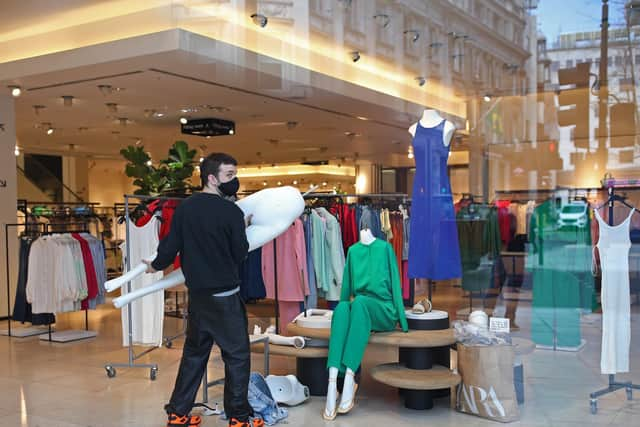UK has 10 years to transform fashion as bid to align with Paris Climate Agreement is set to launch
WRAP will launch its Textiles 2030 initiative on Monday, to set ambitious targets to slash the impact the UK clothing and home fabrics have on the environment through practical interventions.
The voluntary scheme has already secured commitment from more than 10 brands and retailers, 20 re-use/recycling organisations and 10 affiliates meaning that the agreement is on track to have half the UK market signed up at launch.
Advertisement
Hide AdAdvertisement
Hide AdThe first major high-street names to join Textiles 2030 include Dunelm, John Lewis, M&S, Next, Primark, Sainsbury’s, Ted Baker, Tesco and The Salvation Army.


And it is understood online fast fashion retailer Boohoo has also taken steps to join.
The Textiles 2030 Roadmap, to be revealed at the launch, will set out the water and carbon reduction targets, and the key milestones and activities to introduce circularity at scale.
And it is hoped these goals will transform the UK’s make-use-dispose fashion culture into one where products are made sustainably, used longer and then re-used or recycled.
Advertisement
Hide AdAdvertisement
Hide AdThe aim will be to cut carbon by 50 per cent in line with the Paris Agreement on climate change and achieving Net Zero by 2050 at the latest. Commitments will also include reducing the aggregate water footprint of new products sold by 30 per cent..
Environment Minister Rebecca Pow who will speak at Monday’s event, said: “It is time for businesses across the textiles sector to join Textiles 2030 and play their part at this critical time for the planet. Through Textiles 2030 we invite your commitment to work with WRAP, like-minded businesses and other partners towards a thriving, sustainable, circular UK textiles sector. I would like to see every CEO involved in this initiative.”
The agreement builds on the foundation of the SCAP 2020 voluntary agreement (Sustainable Clothing Action Plan) which saw businesses respond to growing public demand for fashion with a softer environmental footprint, by adopting robust measurement and targeted action.
The UK’s Textiles 2030 is the first national agreement in what will become a global network of new initiatives to reduce the environmental impact of clothing around the world, led by WRAP.